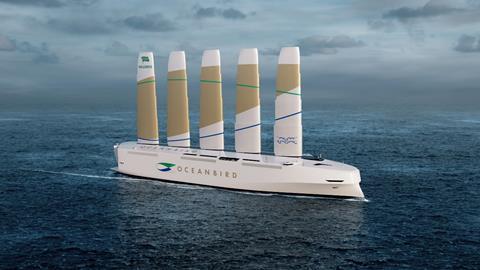Alfa Laval and Wallenius are forming a 50:50 joint venture to develop fully wind-powered propulsion systems.

AlfaWall Oceanbird’s focus will be on telescopic wing sails, a solution that the partners said could reduce emissions by 90 percent on the largest ocean-going vessels.
“Wind has a key role to play in decarbonising the marine industry,” said Peter Nielsen, business unit president at Alfa Laval Marine. “Together with Wallenius, we will harness this abundant natural force to meet both climate needs and those of maritime business.”
Per Tunell, chief operating officer of Wallenius Marine and the future managing director of AlfaWall Oceanbird, added: “Oceanbird wing sail technology will be not only an elegant solution, but also a powerful driver of positive change.”
The technology comprises an array of rigid wind sails built from steel and composite materials that generate forward movement instead of vertical lift. The sails will be able to turn 360 degrees to make optimal use of the wind.
The technology will be valid for any vessel type, but it will be implemented first on a transatlantic car carrier. Able to carry 7,000 cars, the vessel will be 200 m long and will cross the Atlantic in 12 days when sailing at an average speed of 10 knots. AlfaWall Oceanbird will focus primarily on the vessel’s technical sailing aspects, such as the vessel control system that will steer the wing sail operation.
“The wing sails are up to 80 m tall and have a telescopic construction,” added Nielsen. “Besides adjusting to catch the wind, they can be lowered to pass under bridges, to handle harsh weather conditions or for maintenance. Because they will interact with the hull in a sophisticated way, they will also require intelligent control.”
















